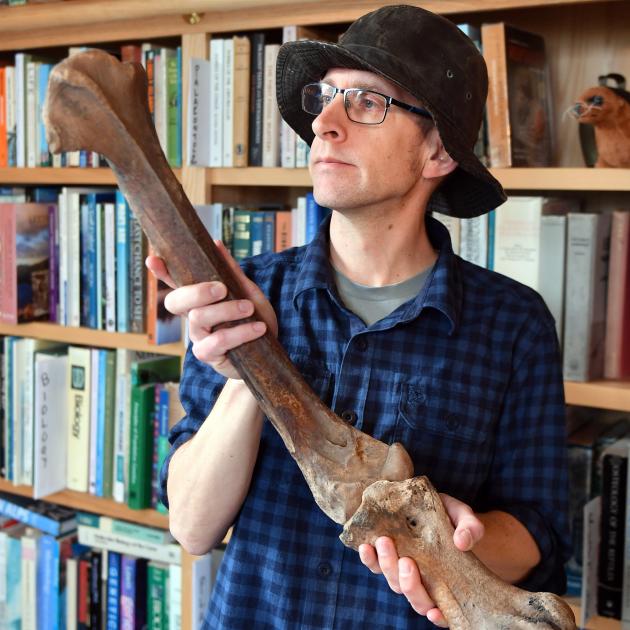
University of Otago paleogeneticist Associate Prof Nic Rawlence has publicly said there was no such thing as de-extinction, and the American company’s plan was "a pipe dream that will likely never take flight".
"Once something is extinct, it is gone."
He said Colossal would be creating a genetically engineered emu or some other genetically engineered ratite that may look like a moa, but was unlikely to function or sound like a moa.
Colossal also claimed to have iwi engagement in the project, but Prof Rawlence said based on his experience working with Ngāi Tahu, there was no appetite for de-extinction among many of the individual rūnanga.
Now, supporters of Colossal have launched a "smear campaign" on him and other top scientists around the globe who have publicly criticised the de-extinction project.
He said there had been three AI-generated articles published in media around the world attacking his professional credibility.
One called him a "hypocrite" because he also uses fragmentary ancient DNA to reconstruct lost ecosystems — the same technique Colossal will use to bring back the giant moa.
The article said he could not criticise Colossal without criticising his own work.
"That’s complete rubbish because we’re very conscious of the limitations of the data that we use, and we don’t over-extrapolate and over-extend our conclusions.
"Colossal are selling that they’re de-extincting things when they’re not. I’m not selling my work as de-extinction."
The second "hit piece" accused Prof Rawlence of being more concerned about being a media fixture than actually doing research.
"It said I should go focus on improving my mediocre publication record.
"My publication record — well that speaks for itself."
The third one that came out earlier this week said he was "misappropriating and misrepresenting the Maori voice" around the extinction.
"All the engagement work I have done around sequencing moa genomes or looking at New Zealand’s taonga species with iwi, hapu, runanga and trusts around the country, means we know the feelings of mana whenua and they are against de-extinction."
Colossal chief executive Ben Lamm has told media the company had no involvement in the AI-generated articles.
However, Prof Rawlence said it was clear the company did not like the critical commentary.
He published a comment piece on The Conversation website about de-extinction, topped with a "tongue-in-cheek headline" saying: "First the dire wolf, now NZ’s giant moa: why real ‘de-extinction’ is unlikely to fly".
On July 12, Mr Lamm posted on X about the article, saying: "There are sometimes crazy, weird conspiracy articles about @colossal which make us laugh — But the dumbest headline of all time goes to this article whose author doesn’t even know moas couldn’t fly.
"If the moas [sic] fly, we really f...ed up. LOL. I wish people did more research. DUMB — LOLOLOLOLOL."
Prof Rawlence said there was also a YouTube video from Colossal about de-extinction science that called its detractors "armchair critics".
"Colossal may not be behind the AI-generated smear campaign, but they definitely are wanting to smear and take down critical commentary."
Prof Rawlence said he was not concerned about the campaign to discredit his work.
"It’s water off a moa’s back for me.
"Under the Education Act, universities have a critic and conscience role enshrined in the legislation, so we can speak out within our area of expertise — which is exactly what we have done.
"We provided critical scientific commentary that we did not support de-extinction and that there were serious scientific, ethical, ecological and indigenous engagement concerns.
"If the supporters of Colossal had any substantial critique to counter our scientific commentary, they would have used it.
"Instead, they’re resorting to this — low blows and personal attacks. So to me, it just means our messages are actually hitting home."
He believed Colossal’s actions were very "Trump-ish".
"If a CEO or a director of a museum or the boss of a university put this tweet out, he would be called up in front of his board, reprimanded, or even worse.
"But this is Trump’s America, and everything is upside down.
"So I wouldn’t call it very inspiring behaviour at all."














